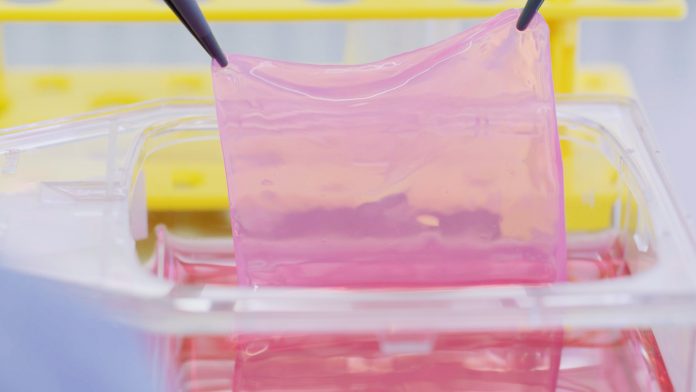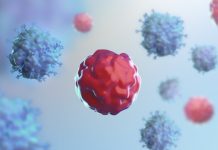
CUTISS’ CEO Dr Daniela Marino explains the world of automated skin tissue therapy, focusing on the company’s next important milestone: clinical validation.
Showcasing CUTISS’ personalised, automated skin tissue therapy for patients in need of skin transplantation, here Marino delves further into the company’s next vital milestone, that being the gain of clinical validation.
Getting under your skin
Skin is our largest organ. Composed mainly of an outer epidermis and an inner dermis, skin is our interface to the outer world and its total loss is incompatible with life. If large proportions of epidermis and dermis are lost, the resulting full-thickness defects (FTSD) represent a significant, and too often unsolvable, problem for surgeons.
The classical conditions that often lead to extended full thickness skin loss are burns, avulsion injuries, septic skin necroses, and iatrogenic skin defects.1 Today, FTSD are treated by means of skin autografting: a split thickness skin graft (STSG) is harvested from a healthy donor site of the patient’s body and transplanted onto the full-thickness wound.
The problem
STSG, being composed of epidermis but only remnants of dermis, are thinner than the wounds, thus, after transplantation, scar tissue is deposited to fill up ‘the gap’ and contraction is promoted to try and reduce the wound volume.
Clearly, during the acute phase donor site shortage represents an unmet need that can be even lethal. In the mid to long term, scarring becomes the major issue.
Scars are indeed not just disfiguring but also debilitating, highly discomforting, they can be painful and can impair mobility and growth and require corrective surgeries, intense homecare and psychosocial rehabilitation.1
The solution
denovoSkin™ a personalised bioengineering dermo epidermal skin graft, offers a solution to the lack of permanent skin coverage. denovoSkin, the Advanced Therapy Medicinal Product (ATMP) developed at CUTISS, is made of cells isolated from a stamp sized patient’s split thickness biopsy and it comprises both the epidermal and dermal components.
Hence, there is no rejection issue after transplantation and the product is safe. Right now, denovoSkin is manufactured with a classical manual procedure. However, CUTISS’ Research and Development team is working full speed on scale up and automation of the manufacturing process supported by a H2020 SME Instrument grant.
The ultimate goal is to position denovoSkin as the first in class automatically produced tissue therapy that can treat patients in a safe, effective and accessible way.
The clinical trials status: recruiting
denovoSkin has received Orphan Drug Designation for the treatment of Burns by Swissmedic, the EMA and FDA. After a successfully completed safety phase I clinical trial,2 it is now in Phase II efficacy trials in Europe (NCT03227146, NCT03229564, NCT03394612).
denovoSkin™ is a safe product and now the success of the efficacy trials is directly dependent on patient willingness to participate in the study. We are actively recruiting in Switzerland (University Children’s Hospital, University Hospital in Zurich), in the Netherlands at (VUmc Center in Amsterdam/ and the Dutch Burn Centre in Beverwijk).
We can recruit paediatric and adult patients with acute burns, but also with a need for elective skin grafting (scar reconstruction, tumours, nevi, plastic surgery, etc.). The burn centre in Rotterdam (NL), Turin (IT) and in 3 centres in Belgium are planned to be active before the end of the year. In those centres our excellent team of surgeons will be able to help patients in need for skin grafting using best of standard of care; by participating in the trials and receiving denovoSkin™ next to standard of care, patients will have the great chance to actively and significantly contribute to the developing program of a potential breakthrough technology that will be able to heal millions of patients in need worldwide.
The skin transplantation field, especially in burns, has waited long enough for an innovative and effective therapy. It takes great teamwork and commitment from CUTISS, surgeons, patients, patient associations, scientists and investors to now make it happen! More info below and on: http://cutiss.swiss/clinical-problem-scars/for-patients/.
Importantly, Burn Compassionate Patients admitted anywhere in Europe or in Switzerland may also be grafted with denovoSkin™.
The burn clinical trial on adult patients
- Title: A Phase IIb, prospective, intrapatient randomised controlled, multicentre study to evaluate the safety and efficacy of an autologous bioengineered dermoepidermal skin substitute (EHSG-KF), for the treatment of partial deep dermal and full thickness burns in adults in comparison to autologous split thickness skin grafts (STSG).
- Summary: The study examines and compares the safety and efficacy of a transplant product (denovoSkin) made from the patient’s own skin with the current standard method, i.e. the transplantation of a thin autologous skin graft (split-thickness skin graft), in patients who need a skin graft due to a skin burn.
- General information: This study is being conducted in persons 18 years of age and older who require a skin graft due to a skin burn.
Two burned skin areas are selected and based on a random distribution, one skin area will be treated with denovoSkin and the other with the patient’s own skin. During the visits after the transplantation, both grafts will be checked for their safety and efficacy. The entire study lasts about 12 months per patient and includes 10 study visits. In addition, yearly follow up visits take place after 2 and 3 years after transplantation.
The burn clinical trial on paediatric patients
- Title: A Phase IIb, prospective, intra-patient randomised controlled, multicentre study to evaluate the safety and efficacy of an autologous bioengineered dermoepidermal skin substitute (EHSG-KF), for the treatment of partial deep dermal and full thickness burns in children in comparison to autologous split thickness skin grafts (STSG).
- Summary: The study examines and compares the safety and efficacy of a transplant product (denovoSkin) made from the patient’s own skin with the current standard method, i.e. the transplantation of a thin autologous skin graft (split-thickness skin graft), in patients who need a skin graft due to a skin burn.
- General information: This study is being conducted in persons of 1-17 years of age who require a skin graft due to a skin burn.
Two burned skin areas are selected and based on a random distribution, one skin area will be treated with denovoSkin and the other with the patient’s own skin. During the visits after the transplantation, both grafts will be checked for their safety and efficacy. The entire study lasts about 12 months per patient and includes 10 study visits. In addition, yearly follow up visits take place after 2 and 3 years after transplantation.
The reconstructive clinical trial on paediatric and adult patients
- Title: A Phase II, prospective, intra-patient randomised controlled, multicentre study to evaluate the safety and efficacy of an autologous bioengineered dermo epidermal skin substitute (EHSG-KF), for the treatment of full thickness skin defects in adults and children in comparison to autologous split thickness skin grafts (STSG).
- Summary: The study examines and compares the safety and efficacy of a transplant product (denovoSkin) made from the patient’s own skin with the current standard method, i.e. the transplantation of a thin autologous skin graft (STSG), in patients who need a skin graft due to reconstructive surgery. This can be due to the removal of a scar, a congenital nevus, a benign skin tumour, or due to a gender reassignment surgery.
- General information: This study is being conducted in persons from 1 year of age who require a skin graft due to a reconstructive surgery.
Two areas are selected and based on a random distribution, one skin area will be treated with denovoSkin and the other with the patient’s own skin. During the visits after the transplantation, both grafts will be checked for their safety and efficacy. The entire study lasts about 12 months per patient and includes 10 study visits. In addition, yearly follow up visits take place after 2 and 3 years after transplantation.
A Company with solid a backbone
CUTISS is a spin-off of the University of Zurich (UZH), it was incorporated in March 2017. Until then, denovoSkin was developed at the Tissue Biology Research Unit (TBRU), a laboratory associated with the Department of Surgery of the University Children’s Hospital in Zurich, Switzerland, where close collaboration between researchers and surgeons was envisioned to be the ideal substrate to succeed.
The message from the clinical team was clear – donor site shortage and scarring too often have no solution. The mission for the scientists was clear: creating a real, innovative and effective alternative to autografting. After completion of the Safety Phase I trials funded by the FP7 EU program, in October 2016, the startup incubator Wyss Zurich decided to financially support the Phase II trials for denovoSkin.
In July 2017, soon after incorporation, the newly funded UZH Life Science Fund, a joint venture of UZH Foundation and Novartis Venture Fund, injected a seed round of 1 Million CHF to launch the automation of production of denovoSkin. In May 2018, CUTISS Ltd closed a Series A with 7255000 CHF (~€6.4m) (lead investor, Giammaria Giuliani, from Giuliani Pharma) and received the H2020 SME Instrument grant for €2.5m.
This financing will now take the company to the next level, all the way forward to 2020. CUTISS’ team is now composed of 18 people involved in R&D, automation, production, and clinical trials – a very strong and experienced team who work in close contact with clinical, regulatory and engineering partners. CUTISS Ltd has been awarded prestigious prizes in Switzerland: The best pitch at the Swiss startup day in 2014, best Swiss business plan 2015, the De Vigier prize in 2017, and is in 2018 TOP5 Swiss startup-TOP1 Swiss biotech.
References
- Marino D., Reichmann E. , Meuli M. Skingineering. Eur J Pediatr Surg. 2014 Jun;24(3):205-13. doi: 10.1055/s-0034-1376315. Epub 2014 Jun 11
- Meuli M. et al. A Cultured Autologous Dermo-Epidermal Skin Substitute for Full Thickness Skin Defects: A Phase I, Open, Prospective Clinical Trial in Children. Plastic and Reconstructive Surgery, Printing in process. Published in June 2019
Dr Daniela Marino
CEO
CUTISS AG
+41 76 230 8046
daniela.marino@cutiss.swiss
www.cutiss.swiss
Please note, this article will appear in issue 10 of Health Europa Quarterly, which will be available to read in July 2019.








